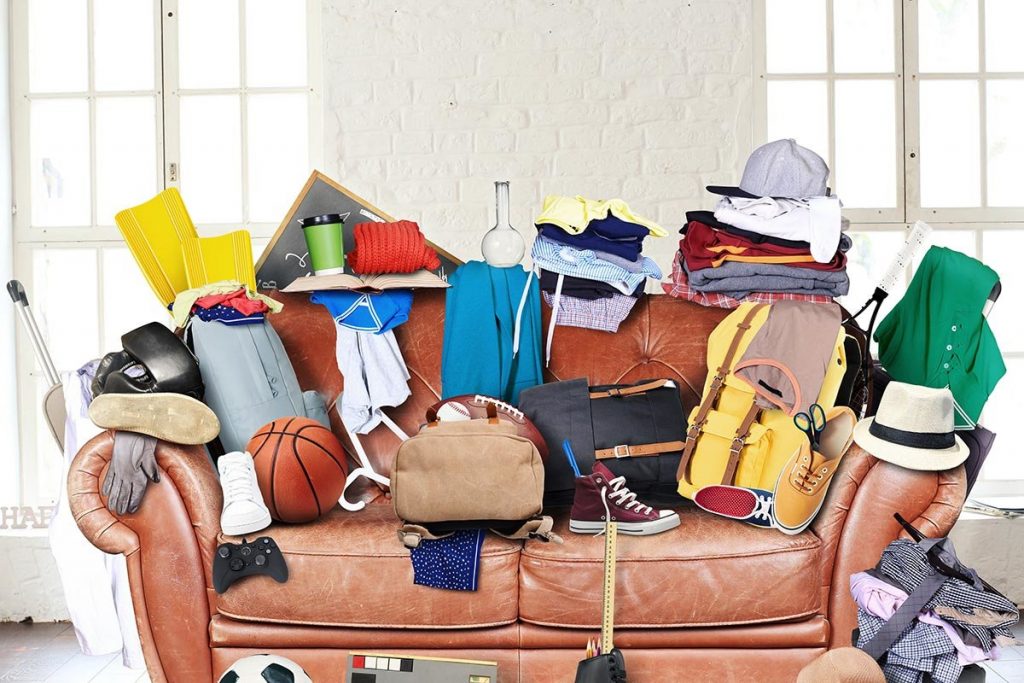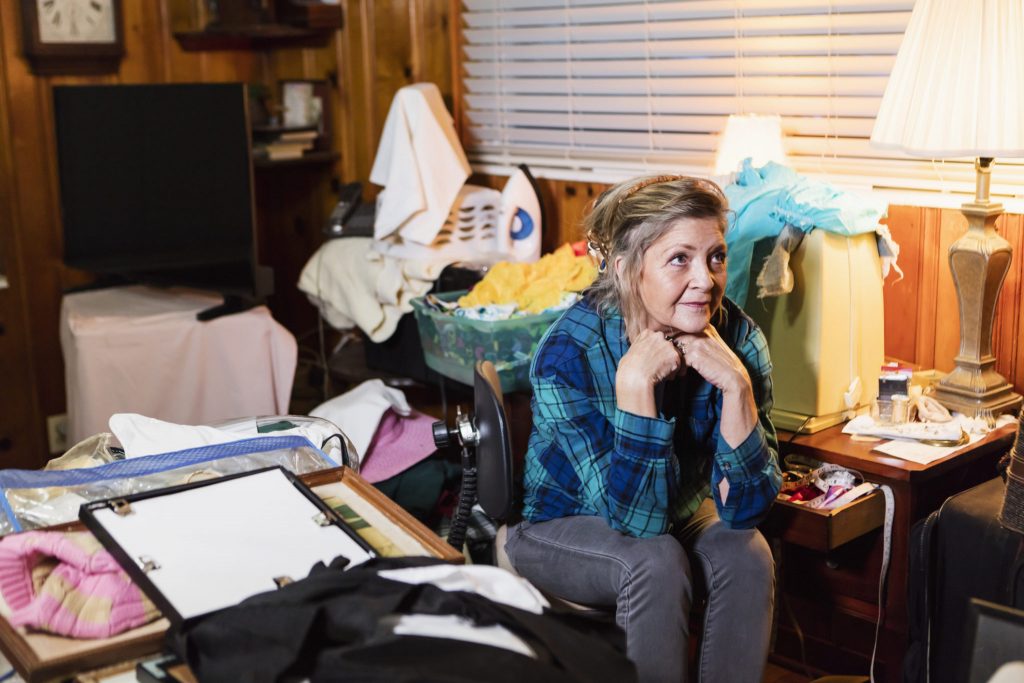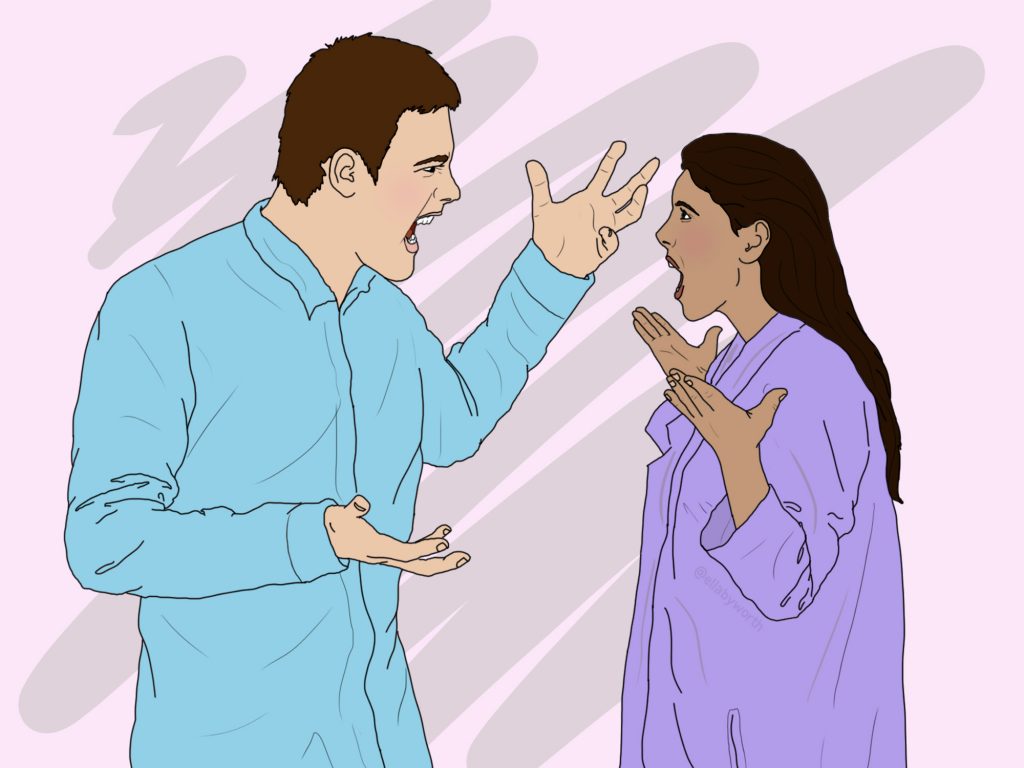
Hoarding disorder is a disease faced by people who have a problem with rejection or separation from the pieces of property and express an excessive need to preserve it. At the very thought of getting rid of unnecessary items, such people perceive it as a catastrophe and get extremely anxious. In such situations, there’s an excessive accumulation of unnecessary things without taking into account their real value, which leads to the complete mess and begins to bother other family members. This disorder later results in cramped living conditions, and when the free space disappears, the mess often spreads to the yard, garage, and other storage space around the house. In some cases, it won’t have much impact on everyday life and functioning, but for other people who suffer from it, this can lead to huge consequences. Should the treatment be refused, the problem can take on even bigger dimensions and prevent normal daily life.
Scientists still don’t fully understand the whole mechanism behind the excessive accumulation of things. By recognizing and understanding such symptoms, we can also start arranging our space in the spirit of Zen simplicity: with the courage to say goodbye to what we don’t need, but also with the joy of keeping our favorite items. The following indications will be useful to us.
Table of Contents
1. Teenage collecting things

Source: medicalxpress.com
This doesn’t mean the standard madness of adolescence when we need all the issues of our favorite magazine or all the posters of our favorite singer. When we were children, out of curiosity, we collected various and mostly strange things (for example, candy cellophane) and kept them under the bed, and later we simply replaced it with things that make more sense and are closely related to our interests.
Instead, “hoarding” is mostly associated with the need to collect unusual little things around the age of 18, and experts believe that sometimes it starts to appear earlier. Most likely, you can’t get sick from this in middle age.
2. Emotional attachment to things that no longer have their original form

Source: blogs.chihealth.com
Hoarders are attached to everything they have, even if it’s broken or damaged. Namely, just as some scents can remind people of something beautiful, collectors have everything of sentimental value. It’s often the case that they use the collected objects to awaken their memories.
3. You try to hide the mess from others

Source: brightside.me
Another sign that indicates that you or someone around you is suffering from this disorder is an attempt to keep all other people out of the clutter.
Probably you’re afraid to let anyone see it because someone might ask you to start throwing one by one. Also, you are afraid that without your knowledge, they could start throwing unnecessary garbage on their initiative. Also, you will try in every possible way to hide the obvious traces and signs that something is wrong and keep others away.
If over time such people start to point out that some parts of their home are out of reach or someone notices that they are worried about the presence of other people in the home, they are most likely suffering from HD.
4. Tidying up the house takes too long

Source: nbcnews.com
Another obvious indicator is when organizing a small amount of clutter is a real nightmare for you. The organization and performance of such activities can take several hours and in extreme cases several days.
What sets an ordinary person apart from those with HD symptoms is the inability to sort things efficiently. For such a person, the simplest arrangement of a shelf or wardrobe can be a big problem because they won’t be able to categorize objects. They will also have difficulty making decisions that are key to saving space and better scheduling.
5. You have a problem finding things

Source: medium.com
With HD people, it often happens that when going to meetings, they often justify how late they are because they failed to find some part of their make-up or clothes. They don’t know where they left their purse or mobile phone.
There is too much need to keep all property insight. Mostly closets and pantries are unacceptable, but they see the floor as the perfect place where everything should stand. Even tables, beds, and armchairs are always welcome.
6. You start arguing when people talk about that mess

Source: metro.co.uk
First of all, all these conversations with the people around you about your problem are pleasant and full of understanding and support. You have received a lot of suggestions and advice on how to try to control this obsessive disorder. Thanks to that, there was hope for a solution.
However, over time, it often happens that you run out of patience to listen to other people’s advice. Conversations can become more difficult and emotional and lead to an obvious conflict of opinion. This is the moment when you become extremely sensitive and there is a risk of hurting a loved one who is trying to help you. Once you notice this reaction, you must be aware that you belong to a vulnerable group.
In addition to friends and family who will always be there to support you, you must understand the seriousness of the situation and start fighting it. Click here and look for some more tips on how to deal with it.
7. Obsessive shopping

Source: unsplash.com
This consequence can lead you into large debts which you may encounter a bunch of difficulties to find a way out from. HD people very often buy a large number of goods unnecessarily and constantly pile them up in the house. Such purchases generally involve spending a much larger amount of money than they actually have and can afford.
Free stuff on promotions, items, and offers attract them very much, although they don’t find their real purpose and application, and they don’t know why they actually need it. People who suffer from the disorder will never admit it, but it can be clearly seen by the unopened packages in their houses and apartments as well as the huge stock of goods they never use.
Hoarding disorder is certainly not something to be ignored and pretending not to exist. Any denial of the problem will only cause greater consequences that will be more difficult to treat later. So, if you notice any of the mentioned signs and symptoms – it is the right time to react, for the sake of a much better and fulfilled life. If you are interested in those kinds of disorders you can find a lot of information here.







